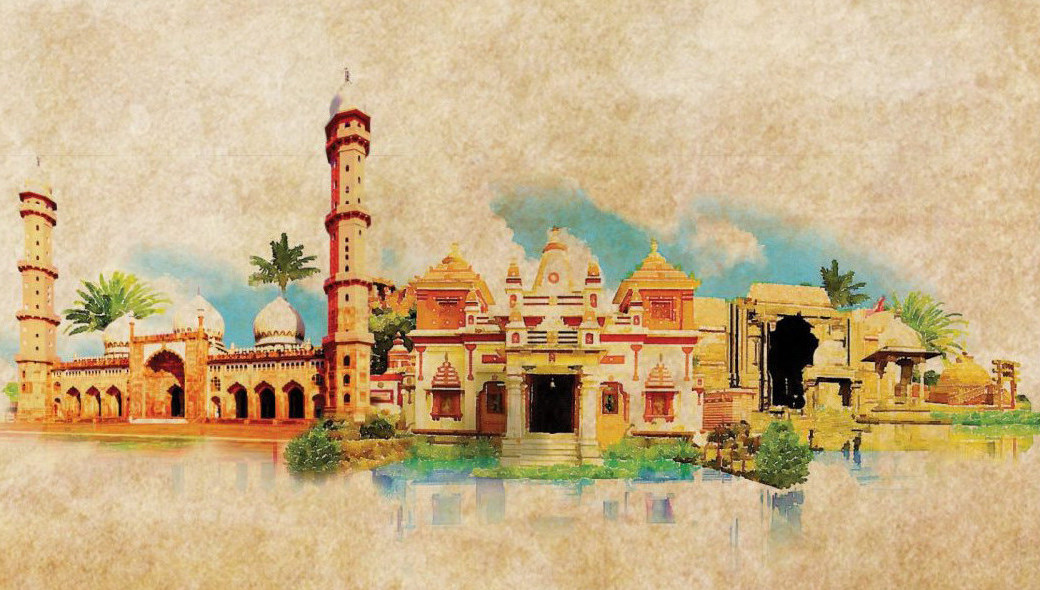INDIAN CLASSICAL MUSIC
Traditional bansuri flute recital
The bansuri is an ancient woodwind instrument from Northern India: a transverse flute crafted from hollow bamboo and pierced with eight holes : a mouthpiece, six finger holes, and a tuning hole. Intimately linked to Lord Krishna, the shepherd and the lover, the bansuri is celebrated for its deep, warm tone and its close resemblance to the human voice. This vocal quality gives it a central place in the Indian classical repertoire, from instrumental music to vocal traditions such as Dhrupad, Khayal, Thumri, as well as folk music. Wind passing through the bamboo finds its own voice, revealing a subtle, spellbinding song.
The delicate invocation of the flute gradually unveils the structure and essence of the Rāga. Breath and skins entwine in a whirling dialogue, where the summoned spirit seems to manifest, both ethereal and powerful. A subtle trance settles in, suspending time, until it stirs an effervescence of the senses.
The Art of modal improvisation, adorned with the inflections and codes of an ancestral music vibrant with spirituality.
A disciple of the renowned maestro Pandit Hariprasad Chaurasia, Guillaume Barraud has become one of Europe’s leading exponents of the bansuri flute recital. He is accompanied on the tabla by percussionists Prabhu Edouard, Mosin Khan Kawa, Ilyas Khan, and many others.
Traditional bansuri flute recital
The bansuri is an ancient woodwind instrument from Northern India: a transverse flute crafted from hollow bamboo and pierced with eight holes — a mouthpiece, six finger holes, and a tuning hole. Intimately linked to Lord Krishna—the shepherd and the lover—the bansuri is celebrated for its deep, warm tone and its close resemblance to the human voice. This vocal quality gives it a central place in the Indian classical repertoire, from instrumental music to vocal traditions such as Dhrupad, Khayal, Thumri, as well as folk music. Wind passing through the bamboo finds its own voice, revealing a subtle, spellbinding song.
The delicate invocation of the flute gradually unveils the structure and essence of the Rāga. Breath and skins entwine in a whirling dialogue, where the summoned spirit seems to manifest, both ethereal and powerful. A subtle trance settles in, suspending time, until it stirs an effervescence of the senses.
The Art of modal improvisation, adorned with the inflections and codes of an ancestral music vibrant with spirituality.
A disciple of the renowned maestro Pandit Hariprasad Chaurasia, Guillaume Barraud has become one of Europe’s leading exponents of the bansuri flute recital. He is accompanied on the tabla by percussionists Prabhu Edouard, Mosin Khan Kawa, Ilyas Khan et bien d’autres.
“Guillaume ushers in a potent challenge to the prevalent negative notions about the competence of non-native performers of Indian classical music. He belongs to an elite minority of foreign musicians who have absorbed the essence of this music and are able to reflect this in performance.”
— Arnab Chakrabarty


